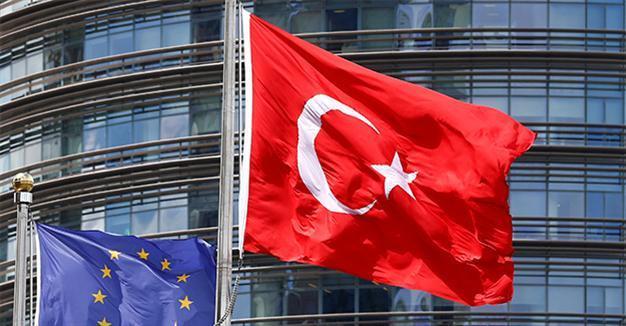EU: Turkey faces a grave threat from PKK terrorism
BRUSSELS

REUTERS photo
Both Ankara and Brussels have strongly condemned the recent terrorist attacks in both the European Union and Turkey and reaffirmed their determination to jointly combat terrorism, as the bloc said after a high-level security meeting that it recognized the threat the outlawed Kurdistan Workers’ Party (PKK) posed to its ally.
“The EU recognized that Turkey faces a grave threat from PKK terrorism,” said a statement by the EU on June 8, following a one-day summit in Brussels, after two deadly car bomb attacks hit Turkey this week.
Tunç Üğdül, the research and security affairs chief for the Foreign Ministry, led the Turkish delegation in the meeting with EU Counter-Terrorism Coordinator Gilles de Kerchove and his group in Brussels.
The meeting was focused on cooperation to block foreign fighters from pouring into Syria and Iraq through Turkey, as well as on the activities in Europe of terror organizations operating against Turkey, Turkish sources close to the meeting told Anadolu Agency.
“The EU and Turkey reiterated their commitment to urgently step up efforts to tackle the threat posed by Daesh and to stem the flow of foreign terrorist fighters,” the EU said, using an Arabic acronym for the Islamic State of Iraq and the Levant (ISIL).
“The EU also welcomed the deployment of a Turkish liaison officer to Europol and agreed to build upon the cooperation established with CEPOL and Europol, possibly extending to counter-terrorism cooperation in training and exchanges of best practices and personnel,” the EU said.
“Turkey and the EU will work together to drive forward international efforts in forums such as the Financial Action Task Force [FATF], the Global Counter Terrorism Forum [GCTF] and the Global Coalition to Counter ISIL,” it said.
The Turkish delegation also sought more cooperation in the fight against the PKK, Syria’s Democratic Union Party (PYD), its armed wing, the People’s Defense Units (YPG), the outlawed Revolutionary People’s Liberation Party-Front (DHKP-C), and the “parallel state terror organization,” which refers to followers of U.S.-based Islamic scholar Fethullah Gülen, the sources added.
Turkey wants the EU to end these terror organizations’ activities in the EU, to accelerate the extradition of those wanted by Ankara – many with red notices issued for them – as well as to effectively fight the organizations’ financial structures and resources in Europe.
Turkey has accused the EU of not giving enough support in the fight against terror, with Ankara saying many PKK terrorist organization leaders and members are living in EU countries, while PKK-owned TV channels broadcast from Belgium.
Turkish officials say even the European Commission fails to encourage member states to closely cooperate with Turkey in the fight against terror. The EU has said Turkey must revise its “legislation and practices on terrorism in line with European standards” in order for visa liberalization for Turkish citizens to enter into force.
But Ankara has firmly rejected any such change.
Meanwhile, U.S. Vice President Joe Biden vowed to continue his country’s counterterrorism assistance for Turkey during a June 8 telephone call with Turkish Prime Minister Binali Yıldırım.
The two leaders “pledged to continue the robust cooperation between the two countries on combatting terrorism,” according to the White House.
